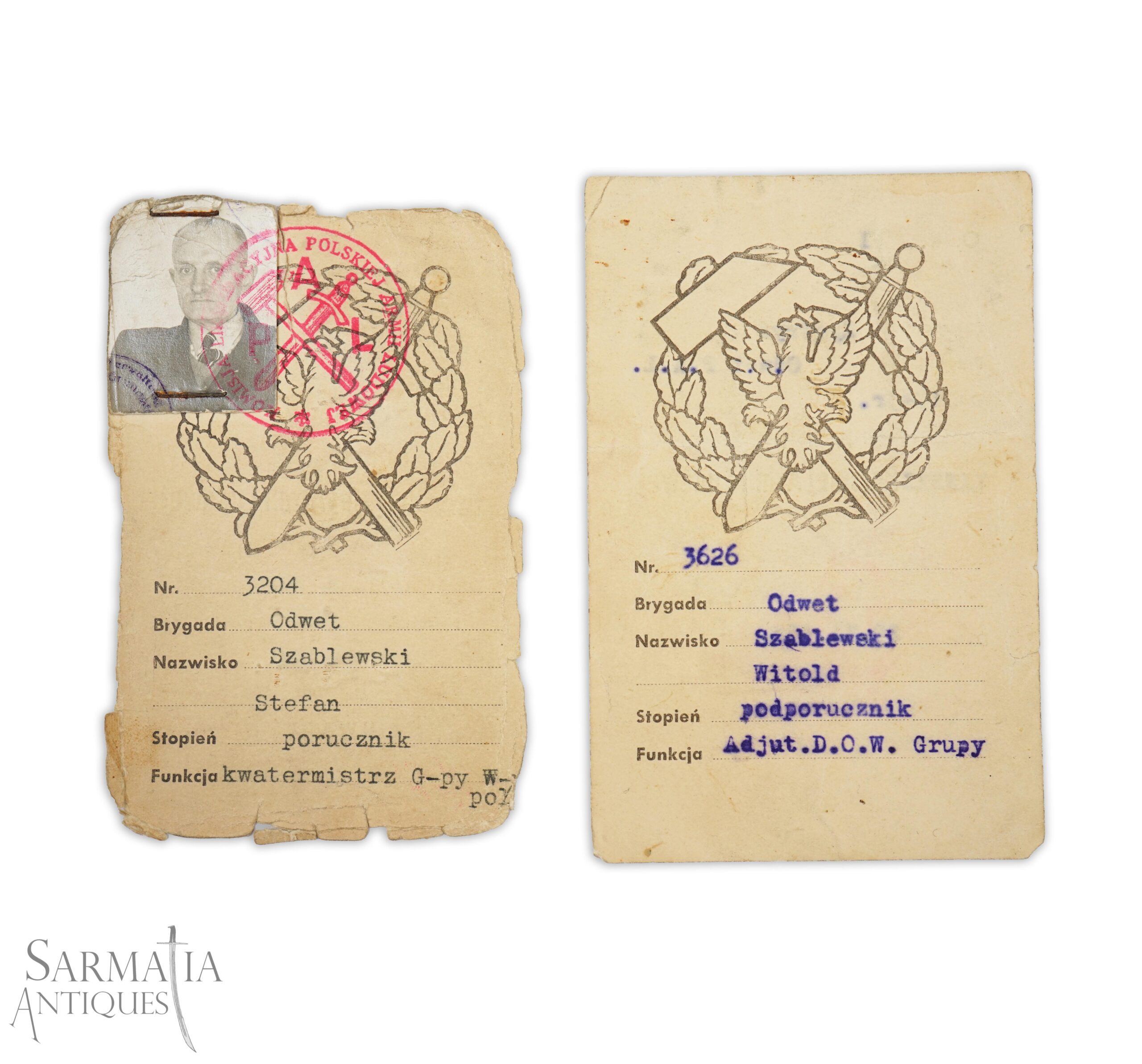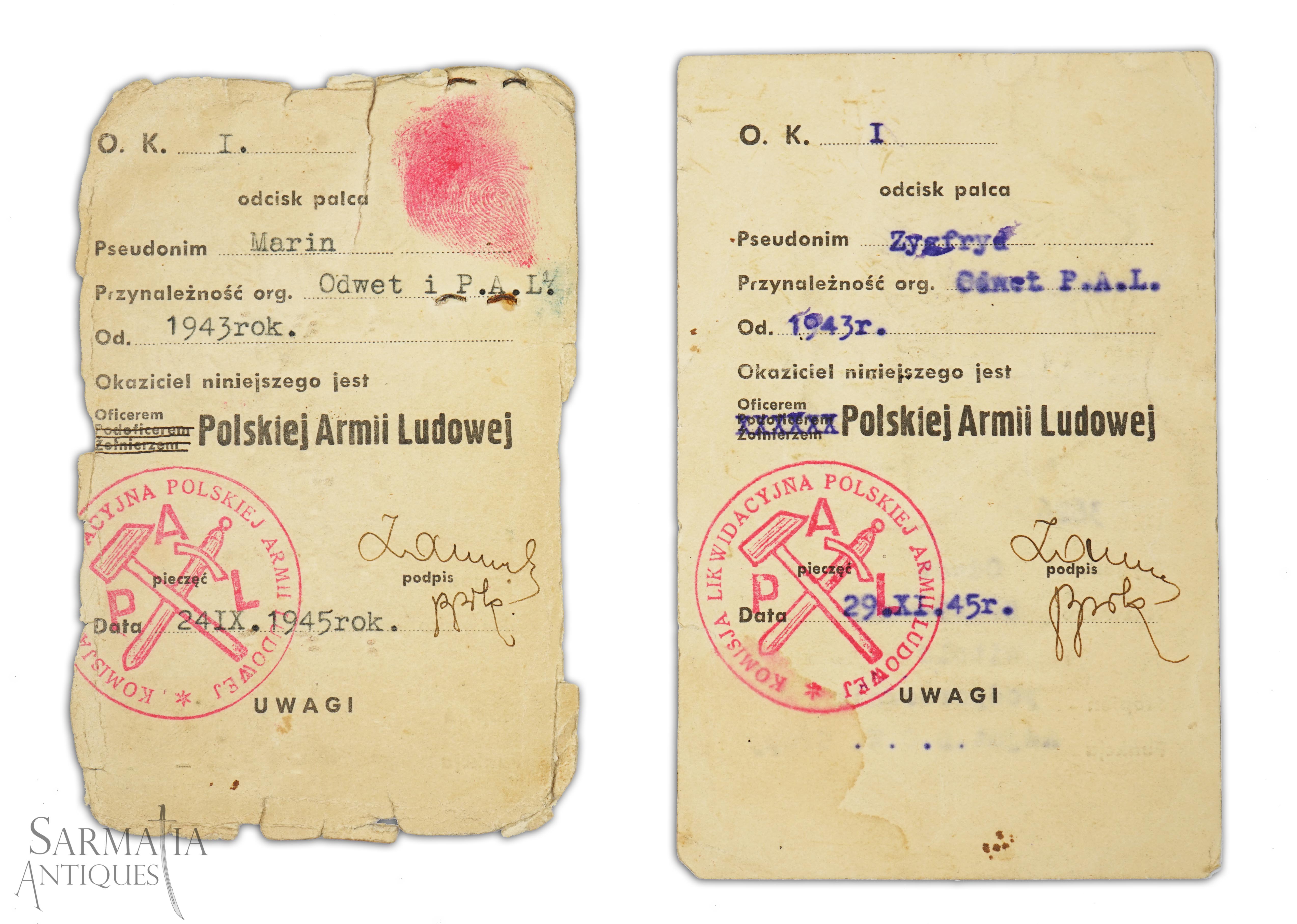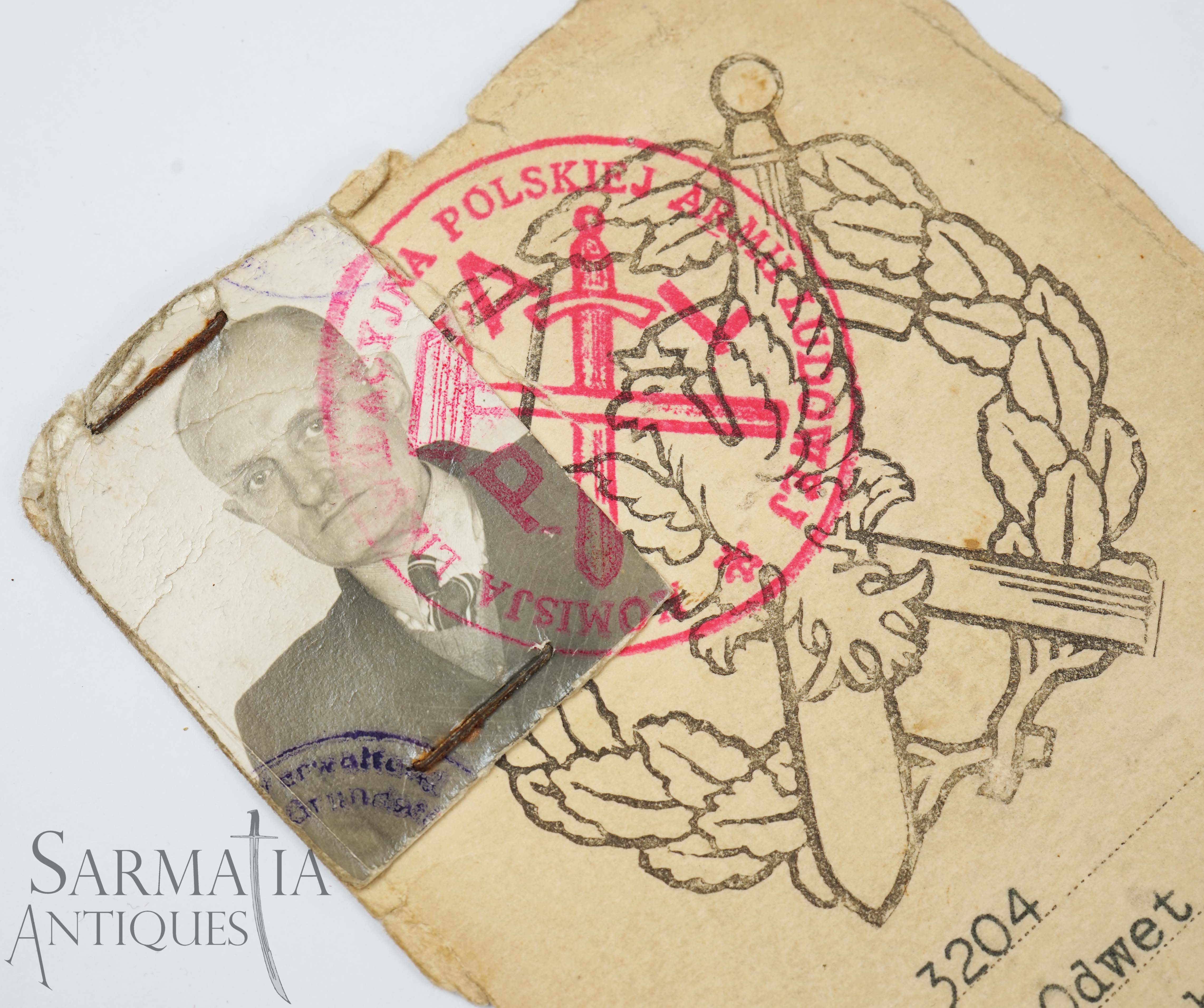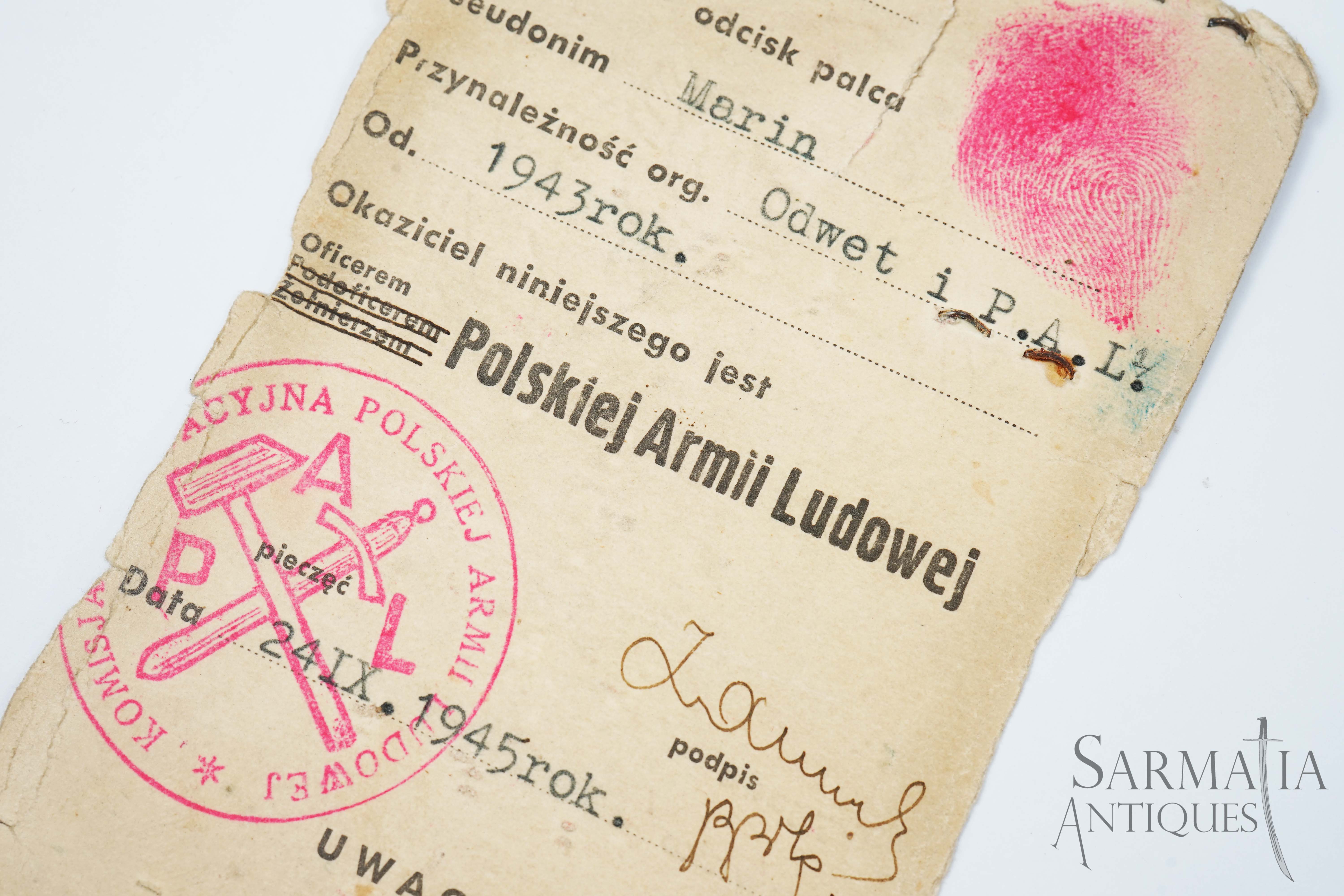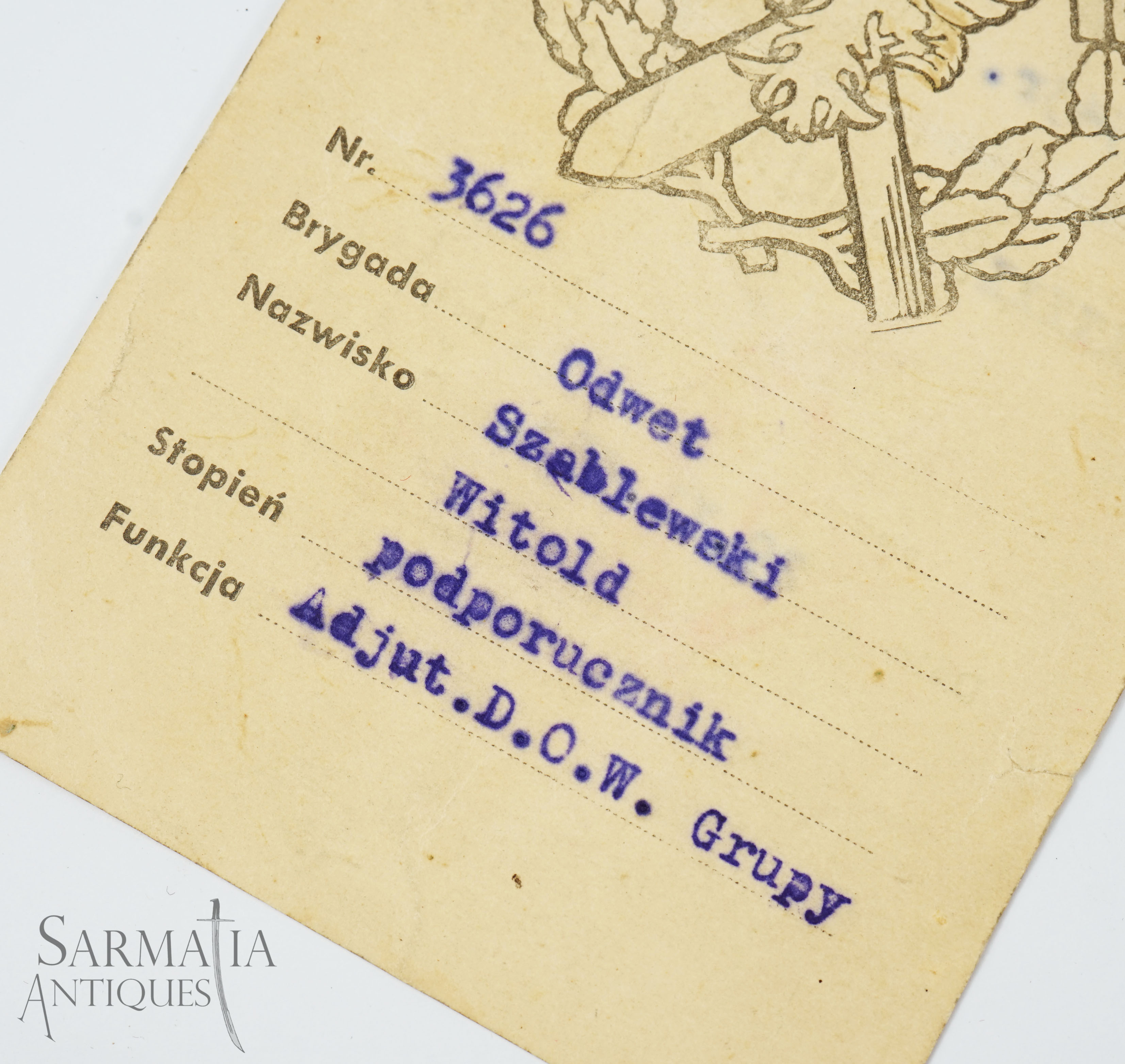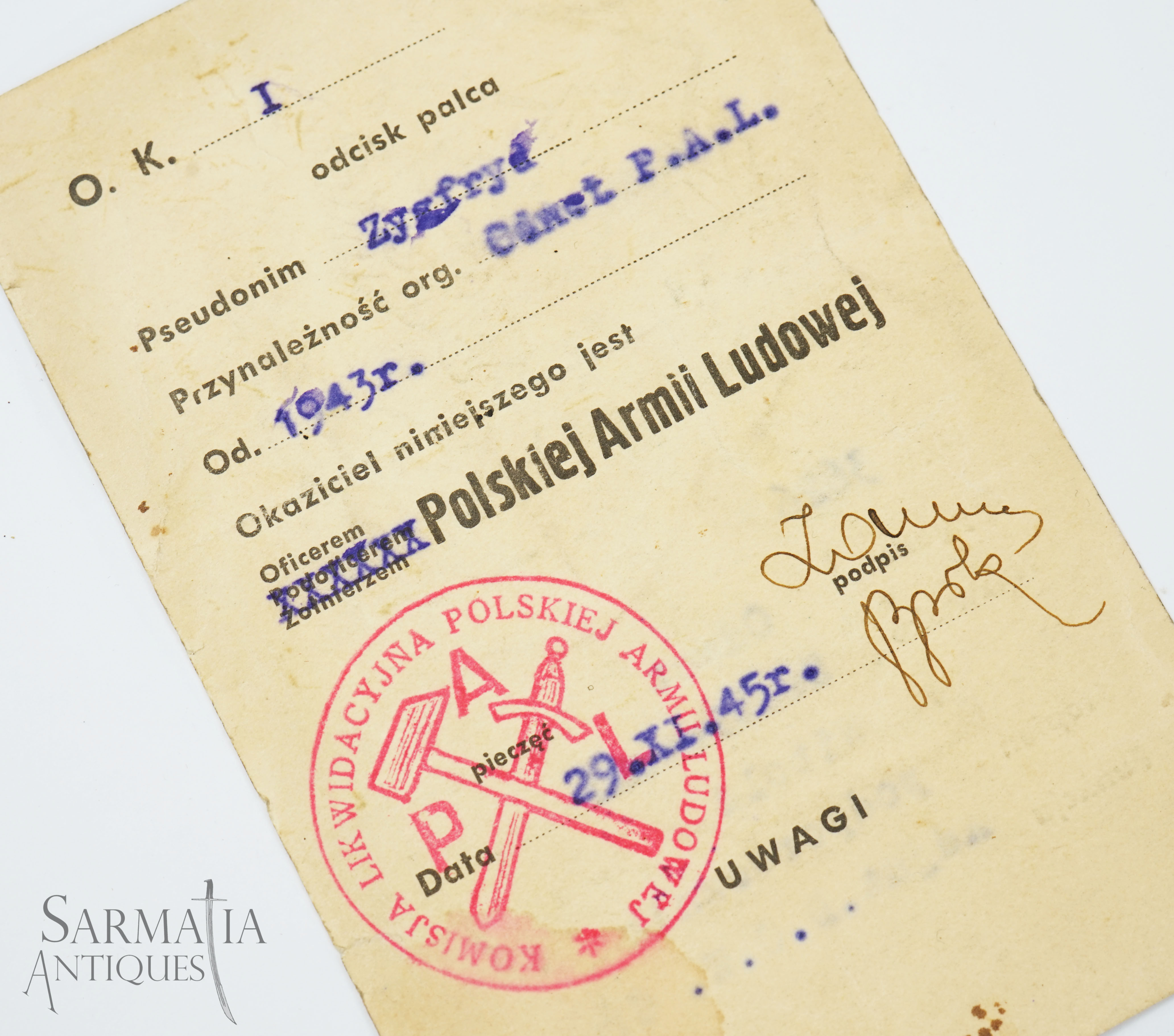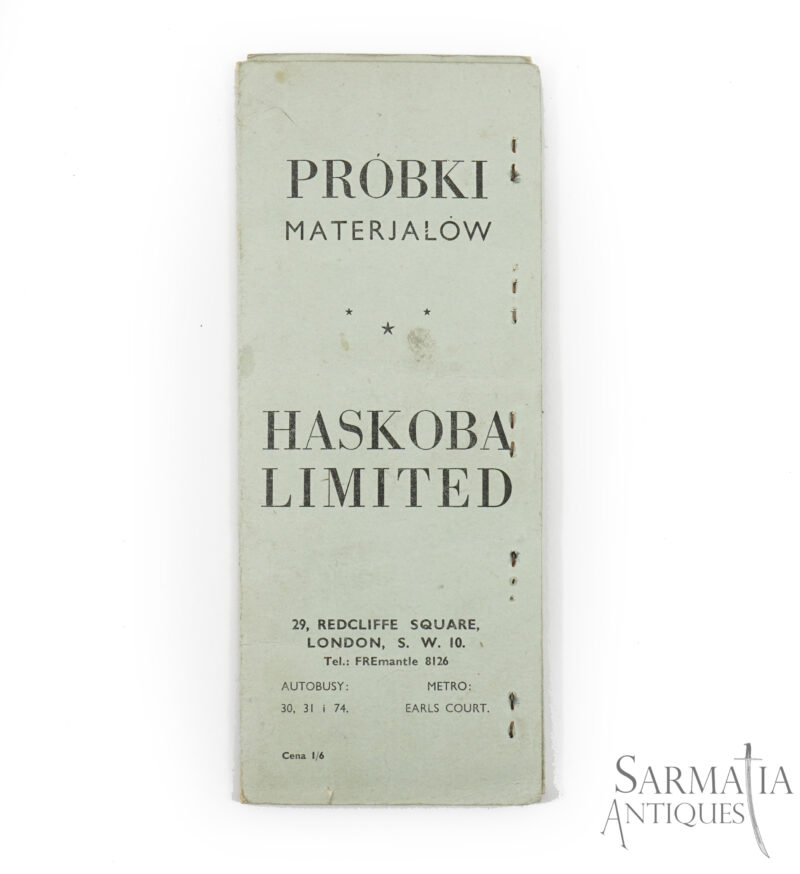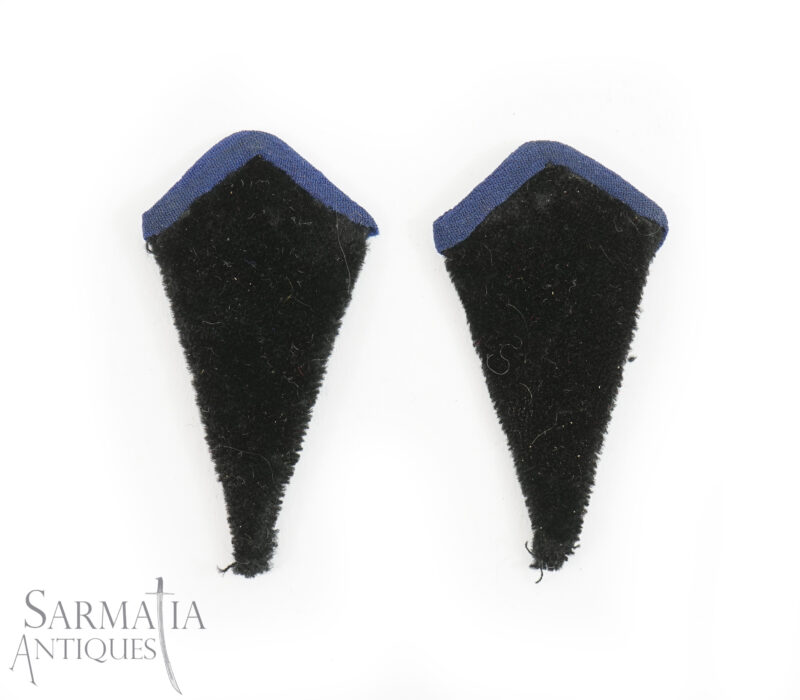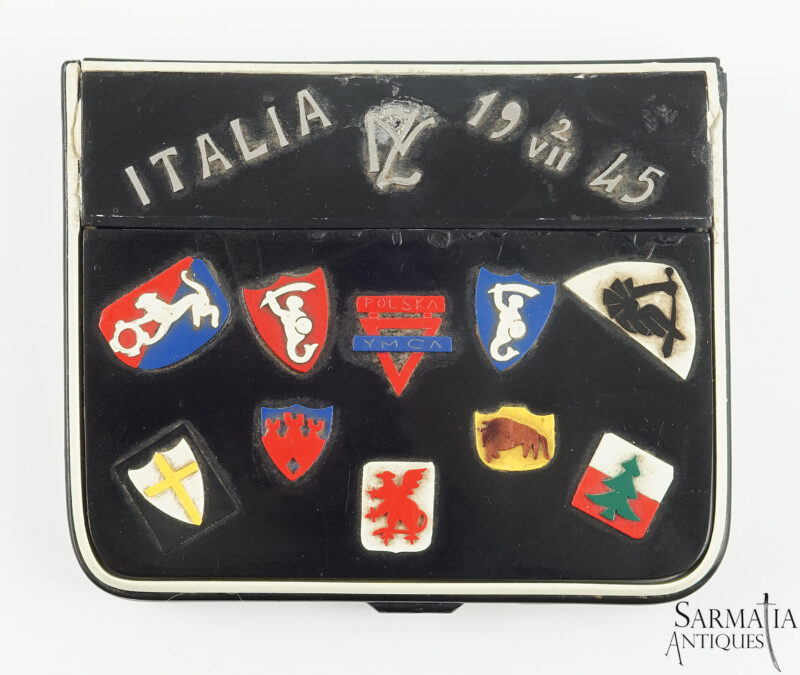
post-WW2 Warsaw Uprising Group – “Żywiciel” Żoliborz
August 1, 2022
WW2 Polish Pocket Calendars – Occupied Poland 1942 & 1944
August 1, 2022WW2 Pair of Polish People’s Army Conspiracy Organization Identity Cards “Forgery”
£949.99
Warsaw, 1945
In stock
A pair of Polish People’s Army ID cards for father and son; Stefan Szablewski and Witold Szablewski.
Witold Szablewski ps. “Zygfryd” was not a member of the Polish People’s Army and not even an officer, the card was probably forged by his father Stefan to allow his son to safely return to communist Poland from the Polish Armed Forces in the West without the risk of reprisals. Witold decided to stay abroad and did not return to Poland.
Members of the Home Army and Warsaw Uprising Insurgents, after being “liberated” by the Red Army and imposing the communist regime on Poland, were repressed, often arrested, imprisoned and even murdered. As a result, many insurgents in Poland did not disclose that they were former Home Army members, and many of those who were in the West decided not to return. The ID card is an important testimony to a difficult period in Polish history and how such a document could save your life.
Witold Szablewski ps. “Zygfryd”, son of Stefan and Maria (née Marczyńska) Szablewski, born on September 2, 1922 in Warsaw. During the occupation, he was sworn in on November 11, 1941 before the Commander of the 2nd Region of the 1st District of the ZWZ Warszawa-Miasto rtm. Władysław Abramowicz “Litwin”. “Zygfryd” was responsible for developing films and delivering photographic materials. During the occupation, he worked at the K. Jarnuszkiewicz’s Iron Furniture Factory at ul. Grzybowska 25. In the house of Witold Szablewski at ul.Złota 31, another underground soldier lived there – Józef Stawski, pseud. “Rybak”, who persuaded “Zygfryd” to join his unit, which he did at the turn of 1942/43.
In the new branch, he was assigned the pseudonym “Sęp” – “Witold”. In July 1944 he was assigned to the 1st District “Radwan” (Śródmieście) of the Warsaw District of the Home Army in the 2nd District “Litwin”, the unit is unfortunately unknown.
He took an active part in the Warsaw Uprising in the rank of Corporal, as a soldier of 412 platoon- 9th Company, Battalion “Kiliński”. From 9th September 1944, together with a platoon, he was part of the 1st “Rum” assault battalion – the “Romański” company. He was wounded in the head on September 3rd, 1944, while serving in the “Królewska 16” redoubt. After treating his wounds, he returned to service.
The outbreak of the uprising found him in the area of ul. Solna. He joined a group of insurgents, with whom – himself unarmed – he set off towards Pawiak. In the evening he tried to return to ul. Złota, however, heavy shelling in the area of Mirowskie Halls made it impossible. It was only in the morning of August 2nd that he reached his home, but he could no longer establish contact with the liaison officer “Sawa” and his unit, so he reported to his neighbor. “Rybak” about joining his branch. He also brought three people with whom he worked during the occupation in Jarnuszkiewicz’s factory – they were: Roman Furman (he assumed the pseudonym “Sęp – Witold”, previously belonging to Szablewski), Józef Retmańczyk pseud. “Czarny” and Ludwik Kowalski pseud. “Jeleń”. On August 3rd, with the group of the above-mentioned he bought a report from sergeant “Rybaka” to the commander of the IX WSOP grouping, Lieutenant “Romański” at ul. Próżna 14. The road was difficult, under constant fire from PASTa building and “pigeons” (hidden German sharpshooters). As a reward for delivering the report, Lieutenant “Romański” presented “Zygfryd” with a Belgian 7.65 mm FN pistol (No.387793), which he did not part with until the end of the uprising.
During the following weeks, he served at various posts: at PKO at ul. Jasna, at the Main Post Office at pl. Napoleon, at the outpost (barricade) of Warecka – Nowy Świat, from mid-August at ul. Zielna 31 and Próżna 14.
As a sharpshooter, on August 20th, he took part in the capture of the PAST building at ul. Zielna 37-39. After this action, he was still in the Zielna 31 and Próżna 14 outposts (after the destruction of the German tank). From August 25, he fought in the “Królewska 16” redoubt, where he also participated in the famous action to help the Old Town at night on August 30/31, 1944. In September 1944, from this post, he took part in an excursion through the breach towards ul. Graniczna, where, together with rifleman “Zorro”, he collected the weapons lying next to the killed German soldiers.
After the surrender of the Home Army in Warsaw, on October 5th in the morning he was taken into captivity by the Germans as part of the “Kiliński” battalion. From October 7, 1944, a prisoner of war of Stalag VIII B Lamsdorf with the number of POWs 105576, on October 16th he was transferred to Stalag IX C Bad Sulza, and on November 4 to Stalag IX A Ziegenhain. After the evacuation of Stalag IX A Ziegenhain, on April 11, 1945, after a long evacuation march, he was freed by American troops near Bad Sulza.
After being released from captivity, he served for several weeks as a guard at the American troops of the MP (Military Police). With a group of former French prisoners of war, he went to Paris, where on May 5, 1945, he joined the Polish Army, serving in the Bessier barracks. In September, he left with Major Józef Czapski to Italy, and there he joined the 2nd Polish Corps of General Władysław Anders, being assigned to the 19th Workshop Company of the 2nd Warsaw Armored Division. In June 1946, he transferred with the corps to Great Britain, stationed at the Hardwick Hall camp. After the demobilization of April 11, 1947, he left for Sheffield, where he started working at the Gillbow factory as a toolmaker. From October 1, 1953 to June 27, 1956, he worked as the manager of Polish Veteran Home.
In addition to his professional work, he actively participated in the life of social organizations, Polish veterans and independence associations. He finished his professional career in 1987 as a technical director and deputy Chairman of the “W. Tyzack, Sons & Turner” concern.
He was repeatedly decorated, among others, with the Cross of Valor, which he did not receive after the war as it was in the last order before the surrender of Warsaw. Witold Szablewski died on February 13, 2008 in Sheffield, England.
Member of the Polish Scouting Movement (ZHP), Senior Scouting Manager, UK District, Senior Scouting Senior Manager, Wilno Scout Squad, he was an instructor at many training courses.

